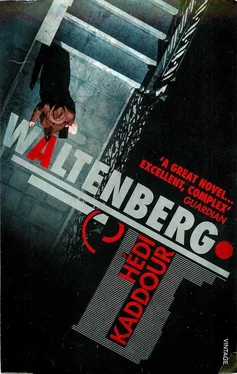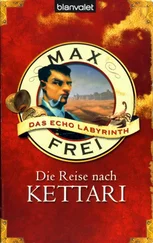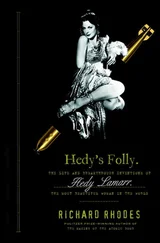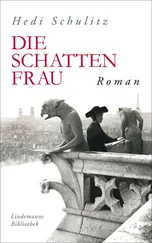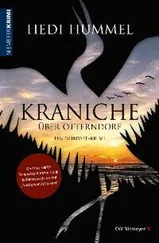Hedi Kaddour - Waltenberg
Здесь есть возможность читать онлайн «Hedi Kaddour - Waltenberg» весь текст электронной книги совершенно бесплатно (целиком полную версию без сокращений). В некоторых случаях можно слушать аудио, скачать через торрент в формате fb2 и присутствует краткое содержание. Год выпуска: 2009, Издательство: Vintage, Жанр: Современная проза, на английском языке. Описание произведения, (предисловие) а так же отзывы посетителей доступны на портале библиотеки ЛибКат.
- Название:Waltenberg
- Автор:
- Издательство:Vintage
- Жанр:
- Год:2009
- ISBN:нет данных
- Рейтинг книги:3 / 5. Голосов: 1
-
Избранное:Добавить в избранное
- Отзывы:
-
Ваша оценка:
- 60
- 1
- 2
- 3
- 4
- 5
Waltenberg: краткое содержание, описание и аннотация
Предлагаем к чтению аннотацию, описание, краткое содержание или предисловие (зависит от того, что написал сам автор книги «Waltenberg»). Если вы не нашли необходимую информацию о книге — напишите в комментариях, мы постараемся отыскать её.
Waltenberg
Waltenberg — читать онлайн бесплатно полную книгу (весь текст) целиком
Ниже представлен текст книги, разбитый по страницам. Система сохранения места последней прочитанной страницы, позволяет с удобством читать онлайн бесплатно книгу «Waltenberg», без необходимости каждый раз заново искать на чём Вы остановились. Поставьте закладку, и сможете в любой момент перейти на страницу, на которой закончили чтение.
Интервал:
Закладка:
Other families had English nannies. It didn’t seem quite as good having Mademoiselle Françoise. She’d been with them for thirteen years. It was Hans who took her to the station, that was barely two months ago, at the start of July. No other member of the family wanted to come.
Françoise stood very straight and wept:
‘Now I shan’t have time to finish the book I was reading from, Master Hans. Please read them the end of Le Grand Meaulnes, they love it, one of the heroes is called Frantz, Frantz, and I saw in the paper that one of your greatest generals is called von François, there won’t be a war, you can begin at the chapter entitled “A Day in the Country”.’
There hadn’t been time for Hans to continue reading the story.
The dragoons are now lined up many ranks deep the length of the forest track, three troops are required for the charge, article I of the Provisional Rules issued 14 May 1912 for the conduct of mounted exercises and manoeuvres, the cavalry shall attack by mounting a charge with bared sabres whenever a favourable opportunity presents itself.
Over a hundred riders, despite the losses of the preceding days, with one troop held in reserve, Captain Jourde has opted for an attack with sabre and lance, Jourde graduated from the military school at Saumur and our tactical answer to all situations was always a charge, otherwise your marks suffered, the lance is the latest model, number three, three metres of steel, it was solemnly delivered on the eve of the war to replace the old lance made from the male royal bamboo imported from Tonkin.
It was supposed to be used only by the leading rank in each squadron but it proved so popular that it was issued to every man. In normal circumstances, the lance is held vertically, its base secured in a holster fixed to the outside of the right stirrup.
As to the charge itself, the Colonel said it is ‘the queen of any battle’, especially when riders stay low on mounts measuring one metre sixty at the withers and weighing on average 500 pounds, with four years’ military training behind them, not a contrary bone in their bodies, Anglo-Norman stock but fiery, great character, ready for anything, solid physique and blood pumping from stout hearts, eager for battle, never as strong as when they hear the rumble of the ground under their hooves, feel their rider press with his knees, give the lightest touch of spur, ease the reins, stand up in the stirrups, crouch over their necks to present a smaller target to enemy fire and see less of the danger, and cry as they ride, because the war has stopped meaning only the death of other men.
During the first days of the war, Hans’s father wrote him a letter in which he spoke of his own shame at being no more than a shadow safe among shadows while ardent youth, which was how he put it, was entering the furnace, which was another of his expressions. And Hans entered this furnace where he and Max, on opposing sides, for some time behaved like men bent on saving culture and civilisation.
But neither Max nor Hans was mad or blind, neither had wanted this folly, and when by Christmas Eve 1915 the war will be well and truly dug in, Max, on sick leave, will be amazed by an article in Le Figaro and rush out to the corner of the rue Richepance and the rue Saint-Honoré and stride into the Blue Dwarf, the high-class toy shop in the most fashionable part of Paris, to see for himself if they really were displaying the machine gun for boys which had made Le Figaro write: ‘Today French toys have acquired a soul.’
Max will tear a strip off the whole shop in the name of Voltaire. He stands in the middle of the shop, next to Father Christmas, surrounded by model sailing boats, dolls from Alsace, miniature beds, tin railway engines, small figures of Jesus and toy machine guns and he shouts:
‘Talapoins, that’s what you are — a bunch of monkeys!’
Max still thinks he is in the land of Voltaire, the fight for right, for truth, we shall win and be worthy, he stands there watched by ladies who find this lieutenant with his arm in a sling rather good-looking, he has big ears but a nice face, a few of them would be only too happy to be admirers and perhaps more, if it were not for the objectionable comments he is making in a loud voice:
‘Machine guns for monkeys!’
An elderly gent tells Max that he is undermining the morale of the nation, children must have something to defend themselves with, the Germans are cutting their hands off in Belgium and northern France, my son is at the front, sir, he has told me what it’s like, and Monsieur Cocteau has published a splendid drawing in the magazine, Le Mot , showing eight large Huns with pointed helmets and knives drawn standing over a little girl who is kneeling with her hands over her eyes, and they are saying:
‘Don’t be afraid, little girl, we’ve just come to ask for your hand.’
Max answers the man saying that’s all monkey propaganda, the Germans themselves believe that the French cut prisoners’ noses off, ears too, this war is already crazy enough, and you really imagine that you can attract customers by dangling lies under their noses? They are perfectly capable of coming without any prompting, you know, it’s never easy. It is due solely to his rank and shiny new medal that Max is not beaten up right there in the middle of the Blue Dwarf by the young mothers and the old gents now all hoarse with fury, Monsieur Poincaré himself, the President of the Republic, the President of us all, has just denounced German barbarism, it is a sacred task, get out, sir!
While this rumpus is going on, a boy strays from the machine gun counter and wanders over to the clockwork dolls, currently somewhat unpopular, he winds one up, black corselet, long skirt, blue flag, with a white apron, a chain with a large crucifix, clogs, a round face and pointed nose, she is carrying a pile of plates, suddenly the plates leap into the air then fall down again, and the doll raises her head, rolls her eyes like two marbles up to seek heaven as her witness. She is a Breton peasant and the model is ‘Bécassine Drops The Plates’.
After the war, Hans will return to Rosmar, peace, the sea, writing, writing ten hours a day, no eight, and two hours of exercise, like an Englishman, or a long walk along the beach behind a coterie of curlews which fly off every time you get anywhere near and resettle thirty metres further on, keeping to the water’s edge, the place where the waves finally disappear in the sand, you can walk without sinking in too much.
In January 1914, Hans has decided to resign permanently from the shipyard where he works as an engineer, his first book has been successful, he has the feeling that he has only used a small part of what can be done with a novel, after this war he will talk to Lena about the new one he intends to write, he will be passionate, this next book will be a family saga, an all-embracing novel, one in which reality returns to fiction. Where could she have disappeared to?
He will tell her that he’ll come a cropper, that he doesn’t care, it’s worth it, a big story, at one and the same time it will be about what’s going on inside the head of a character and what is happening in the world outside, he’ll have to find the right rhythm to convey the flow of the man’s thoughts, a new kind of monologue, a crazy idea, a little-known Frenchman already tried it, he called the result The Laurels Have Been Cut Down, it can be done a lot better using everyday language.
But that might never come to anything. It might turn out that in this opening scene of a war whose participants still believe they are the centre of the universe and from which Max is absent, despite his sticking-out ears, despite coincidence, despite the dumb resignation of the horse he was about to mount, it may turn out that Hans, contrary to what Max wished to believe, will also disappear without ever seeing Lena again and get himself idiotically killed by one of these dragoons who are the pride of the French army and who will write a page of history, perform a great martial exploit, that heroic cavalry charge which is the essential element of any strategic breakthrough, according to the last appendix of General Army Regulations for 1913.
Читать дальшеИнтервал:
Закладка:
Похожие книги на «Waltenberg»
Представляем Вашему вниманию похожие книги на «Waltenberg» списком для выбора. Мы отобрали схожую по названию и смыслу литературу в надежде предоставить читателям больше вариантов отыскать новые, интересные, ещё непрочитанные произведения.
Обсуждение, отзывы о книге «Waltenberg» и просто собственные мнения читателей. Оставьте ваши комментарии, напишите, что Вы думаете о произведении, его смысле или главных героях. Укажите что конкретно понравилось, а что нет, и почему Вы так считаете.
